Table of Contents Show
If you want to see the Mendenhall Glacier, tour the Tracy Arm Fjord, hop aboard a Tlingit canoe, or walk through a traditional clan house, you’ll need to plan a trip to Juneau, Alaska.
Although it’s the capital city, Juneau is often forgotten because roadtrippers head farther north to the Kenai Peninsula, Anchorage, Fairbanks, and Denali National Park.
But this city is worth visiting, if not for the beautiful landscape and rich culture, for its unusual characteristics. A few things make Juneau special, and today, we’re going to give you five unique facts about this U.S. capital. Let’s dive in!
Where Is Juneau, Alaska?
Juneau, Alaska, sits in the panhandle in the Gastineau Channel. It’s part of the Inside Passage that stretches from northwestern Washington through British Columbia and into the islands of southeastern Alaska.
This area frequently sees cruise ships, freighters, fishing vessels, and ferries of the Alaska Marine Highway. Other popular locations near Juneau include Skagway to the north, Sitka to the southwest, and Ketchikan to the southeast.
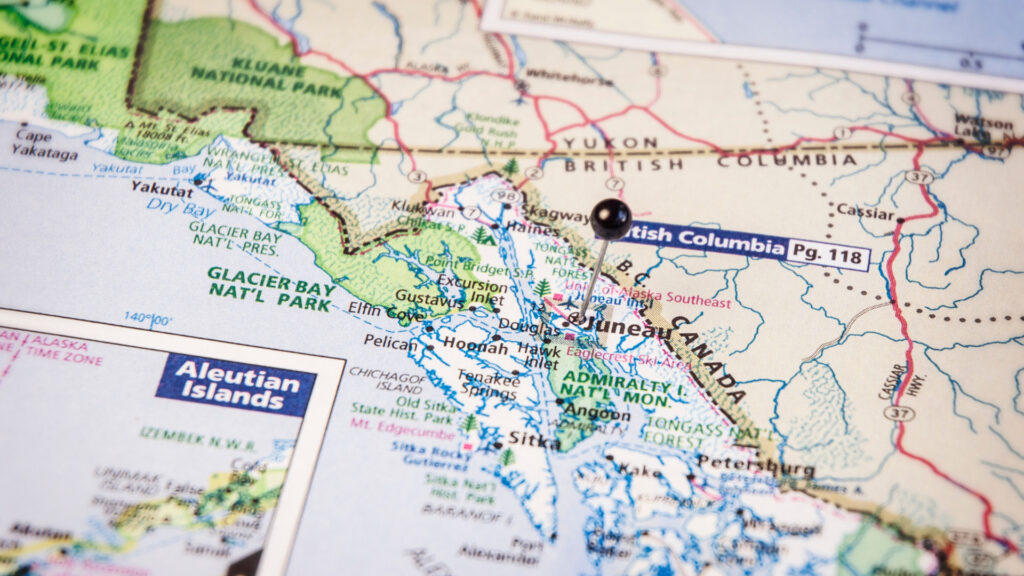
How Big Is Juneau, Alaska?
Juneau is a large city in Alaska, covering approximately 3,255 square miles. However, only 14 square miles are urban. It’s also the third-largest city in the state behind Anchorage and Fairbanks.
About 32,000 residents live in the capital city. Tourism, fishing, mining, and government are the largest industries.
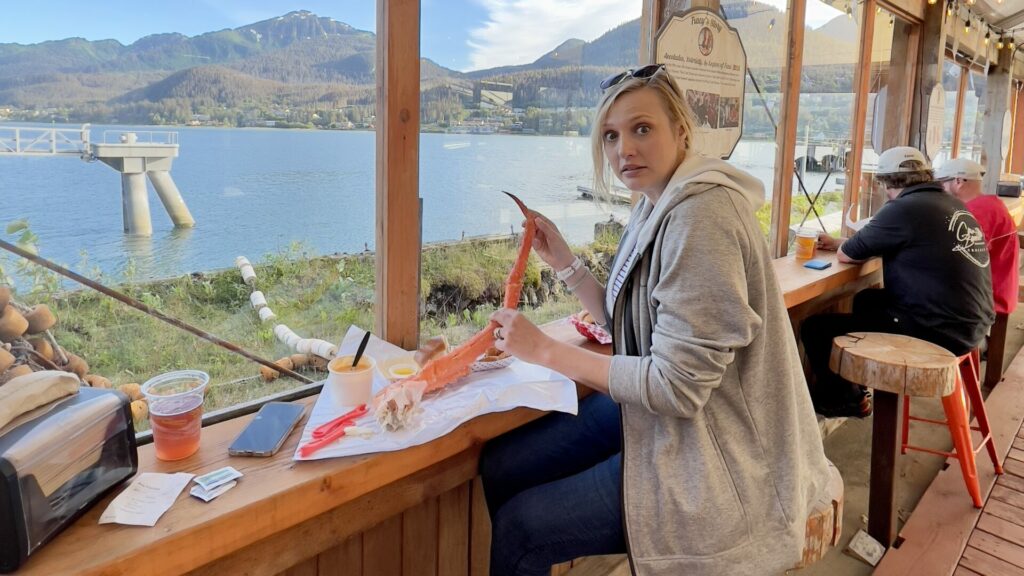
What Makes Juneau, Alaska Unique
Juneau, Alaska, is the capital city of the Last Frontier, but this isn’t what makes it unusual. This is a special place where about 1.5 million tourists visit each year. Let’s find out what makes Juneau, Alaska, unique!
1. It Was Built on Mining “Tailings”
Prospectors Joseph Juneau and Richard T. Harris reached the Gastineau Channel in August 1880. In October, the two established a mining camp for others in search of gold.
By the next year, the small town was flourishing, and Juneau was born. As more gold was discovered, tailings piles got longer and larger.
Tailings are the result of mining. After the gold is extracted from the material, the leftover waste is piled up in long lines called “tailings.” Eventually, the current downtown area of Juneau was built on these tailings. That’s one way to expand your buildable land!
This rich mining history is still present in the capital city. Tourists can visit what was once the world’s largest gold-producing mill at AJ Mine.
Keep in Mind: Alaska is filled with unique towns! See if the small town of Eagle, Alaska, is worth visiting.
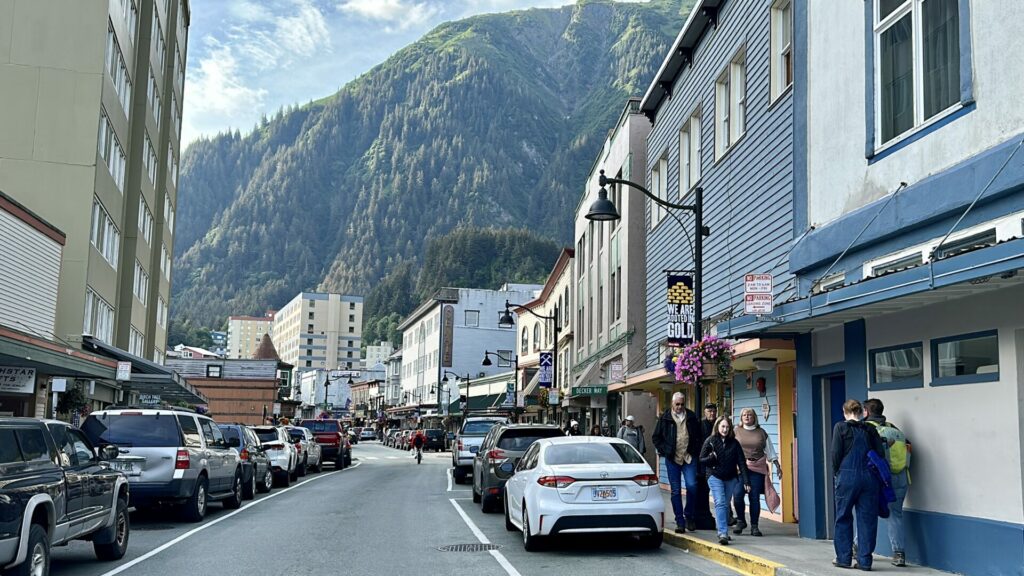
2. (In)Accessibility
Did you know you can only get to Juneau, Alaska, by boat or plane? No roads connect the city to the rest of Alaska due to the rugged terrain. Most visitors arrive in Juneau via cruise ships or Alaska Airlines.
Flights from Seattle take about two hours to reach Juneau. Travelers who prefer to use the Alaska Marine Highway System can board a ferry in Bellingham, Washington, and arrive in Juneau three days later.
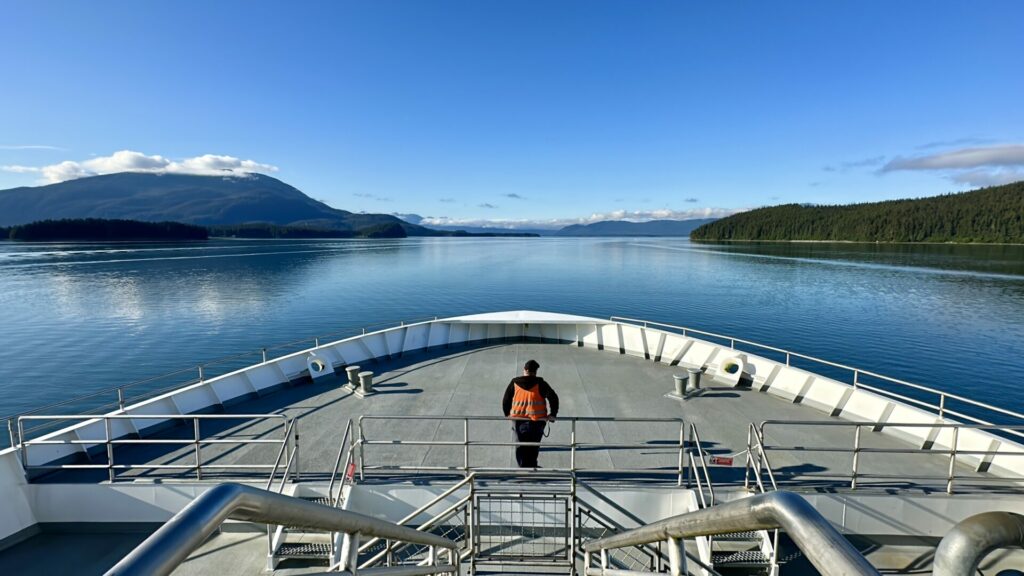
3. Taku Winds
The Taku Inlet sits just south of Juneau. The Taku winds, named after this inlet, are ferocious, sometimes attaining hurricane force. From October to March, these winds are the strongest in Juneau.
It’s a natural phenomenon that occurs when large, cold air masses from the Canadian mountains blow over the ridge and down into the capital city.
4. Local Lingo
When you visit Juneau, Alaska, you’ll quickly learn that there’s a unique lingo spoken among the locals. For example, “Dollies” are a type of trout, “the Flats” is a local neighborhood, “out-the-road” is the outskirts of Juneau where it’s most rugged and wild, and a “sourdough” is a long-time Alaskan.
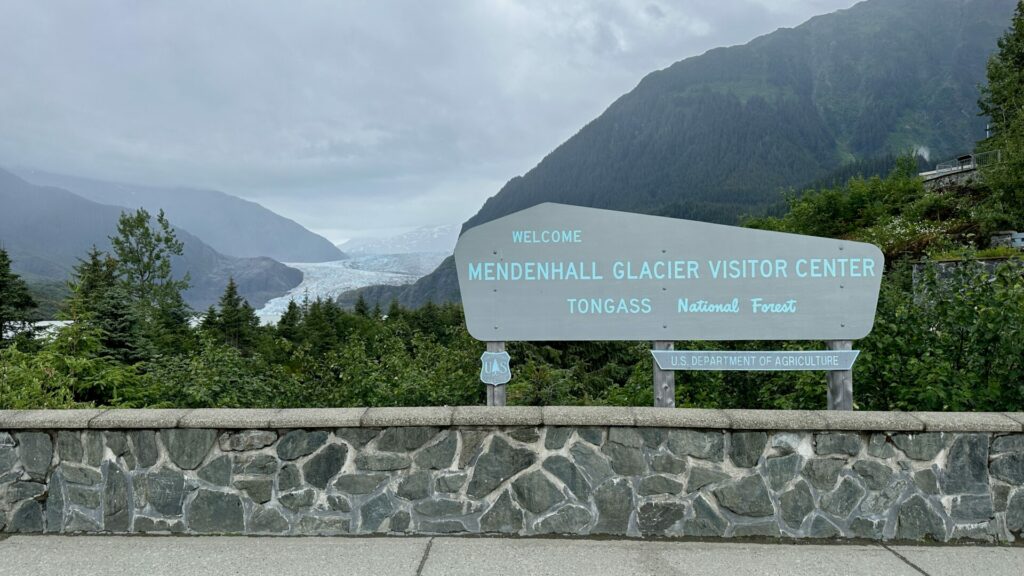
5. The Totem Poles
Juneau has a rich native heritage. Recently, signs were placed along the Kootéeyaa Deiyí, or Totem Pole Trail, to explain the significance of the 12 totem poles and the culture of the Lingít people. There are also totem poles throughout the capital city.
The Atom Totem Pole and Four Story Totem Pole sit outside the City Museum, the Friendship Totem Pole sits near the lobby of the Courthouse Building, the Governor’s Totem Pole sits outside the Governor’s Mansion, and the Wooshkeetann and Auk Tribe Totem Poles lie outside Centennial Hall, just to name a few.
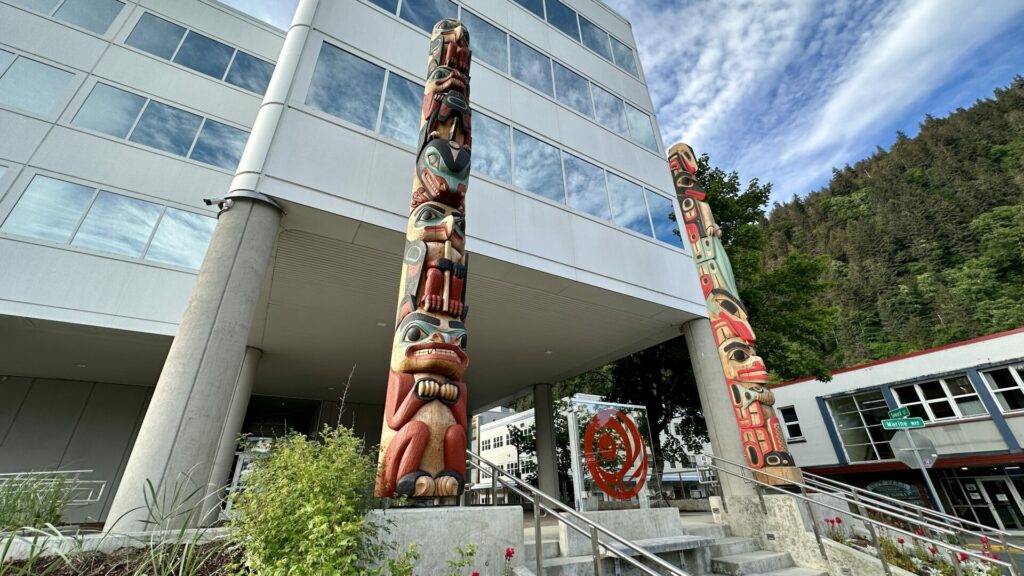
Be Prepared: Juneau, Alaska, Is Expensive
However, Juneau isn’t a place where tourists tend to spend a lot of time because of the high cost of living. According to Payscale.com, Juneau’s “cost of living is 28% higher than the national average.”
Housing, groceries, utilities, and transportation costs are all above the national average. Tourists wanting to buy groceries for a weekend will pay about 36% more.
Keep in Mind: Now that you know why we love Juneau, you need to hear Why Skagway, Alaska Is So Special!
Best Time to Visit Juneau, Alaska
Winters in Juneau, Alaska, are dark. Unless you want to explore Alaska’s wilderness via dogsled, snowmobile, cross-country skiing, or another winter recreational activity, it’s best to avoid visiting Juneau during this long, cold season.
This is why much of the city relies heavily on tourism during the summer months, with daily cruise ships docking and airplanes landing multiple times a day at the Juneau International Airport. Summer highs are around 70 degrees.
But, like much of Alaska, Juneau experiences more than 200 days of precipitation. So it’s likely you’ll have rain at some point during your visit.
Therefore, it’s important to prepare for variable weather: pack layers, raincoats, and waterproof footwear. A bright, warm summer day can quickly turn into a cold, rainy late afternoon.
Visit Alaska’s Unusual Capital City On Your Next Road Trip
Juneau, Alaska, is an unusual city. But it’s also known as one of the most scenic capitals in the country. Juneau sits at the base of Mount Juneau and Mount Roberts, with the channel forming the rest of the boundary. The Mendenhall Glacier is one of the top attractions in the entire state. You’ll likely see brown bears, humpback whales, or bald eagles.
Juneau’s rich native heritage runs deep. There are numerous museums and establishments where you can learn more about the city’s history and people.
So even though Juneau is only accessible by plane or boat, it’s worth a visit. Save your money and plan a trip to Alaska’s capital city the next time you want to visit the Last Frontier.
Have you ever been to Juneau, Alaska?




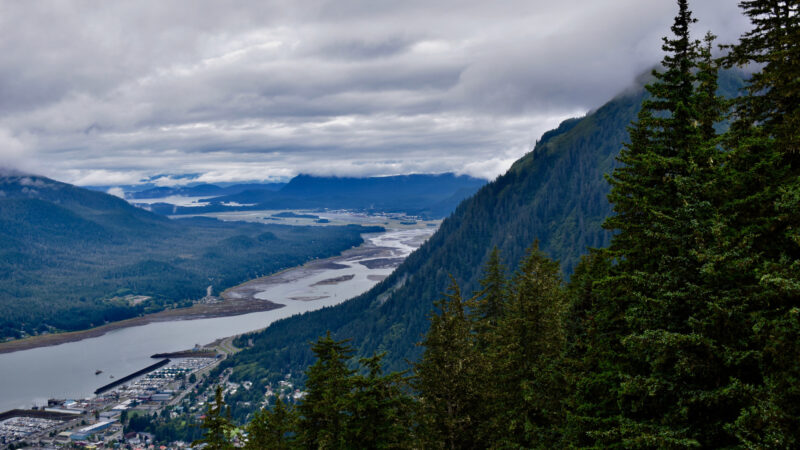
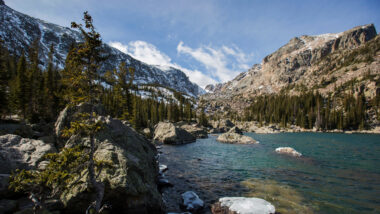
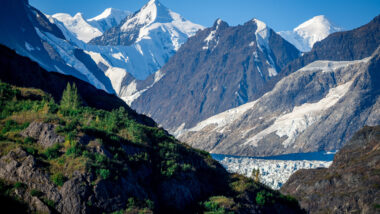
I was in Juneau for work in August a few years ago. It was cloudy and damp the entire time I was there. The temps were in the 40s and 50s – very chilly (for me) for August! But I did enjoy my visit to this city very much. The glacier was stunning, as were the vistas of the surrounding mountains and forests. I ate fish (of course) while I was there – not inexpensive but delicious. When the cruise ships arrived, the downtown area was completely transformed. Otherwise, it was pretty quiet.
If you go, dress warm, bring a raincoat and plan on it being cloudy.